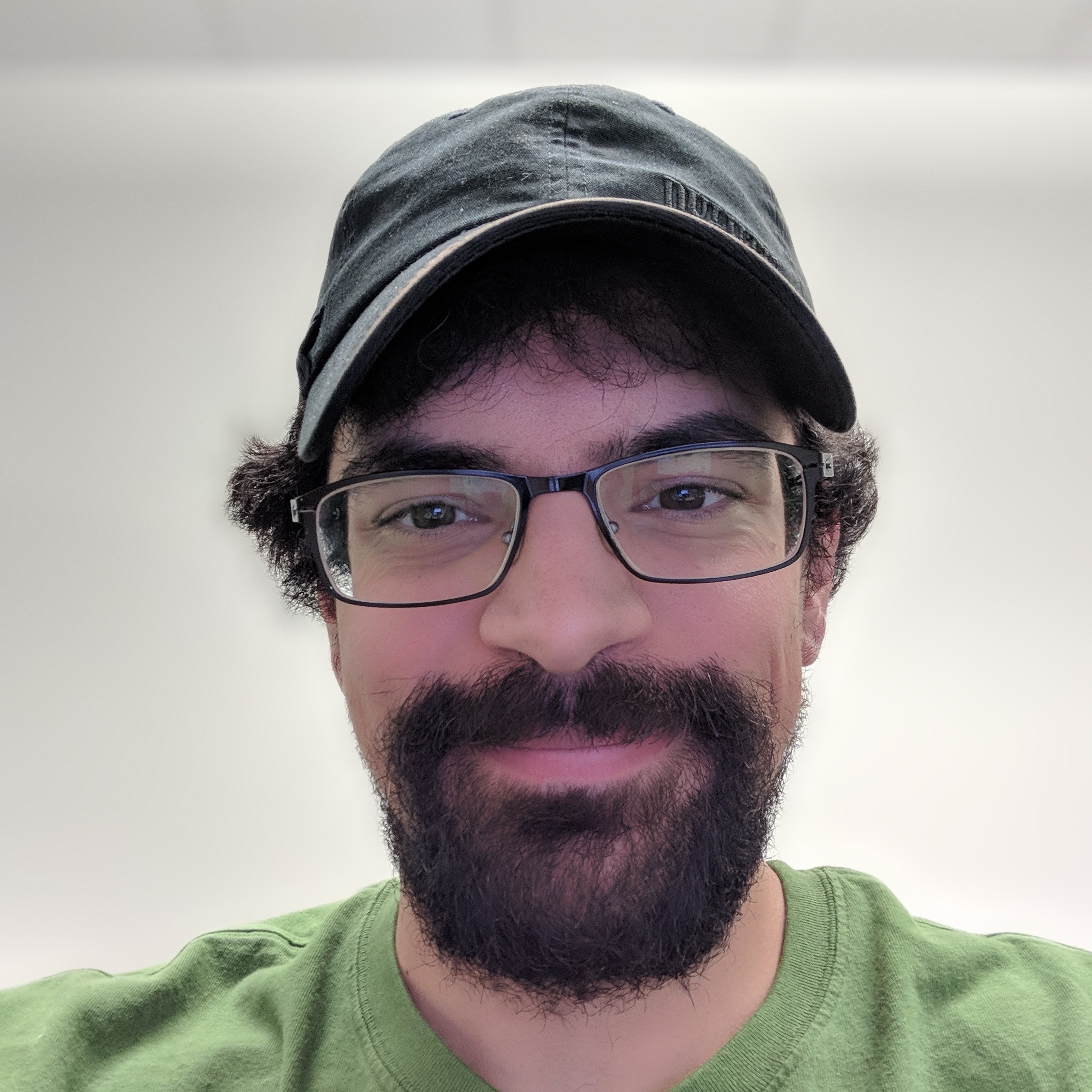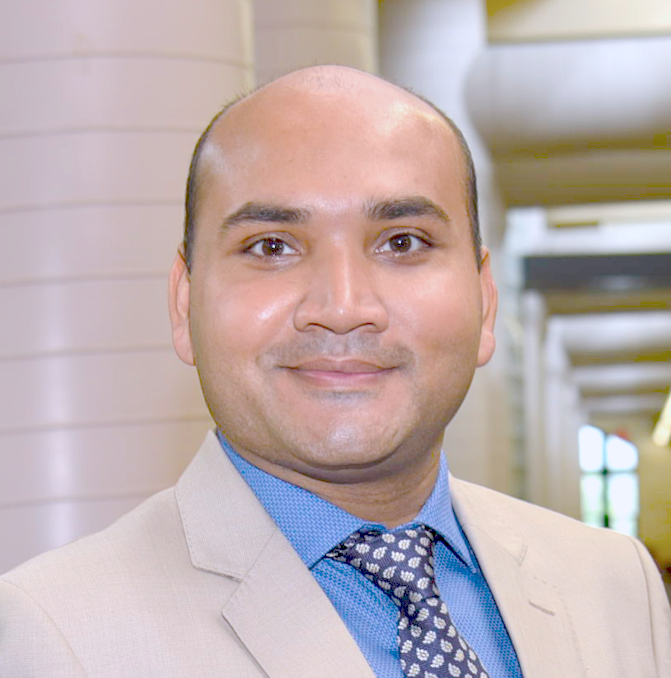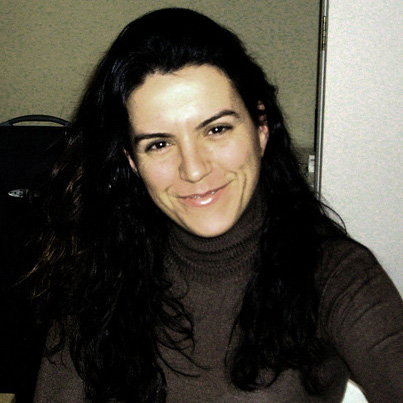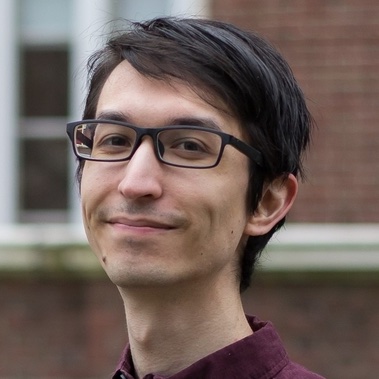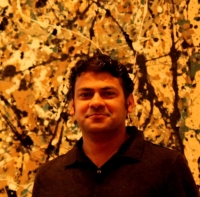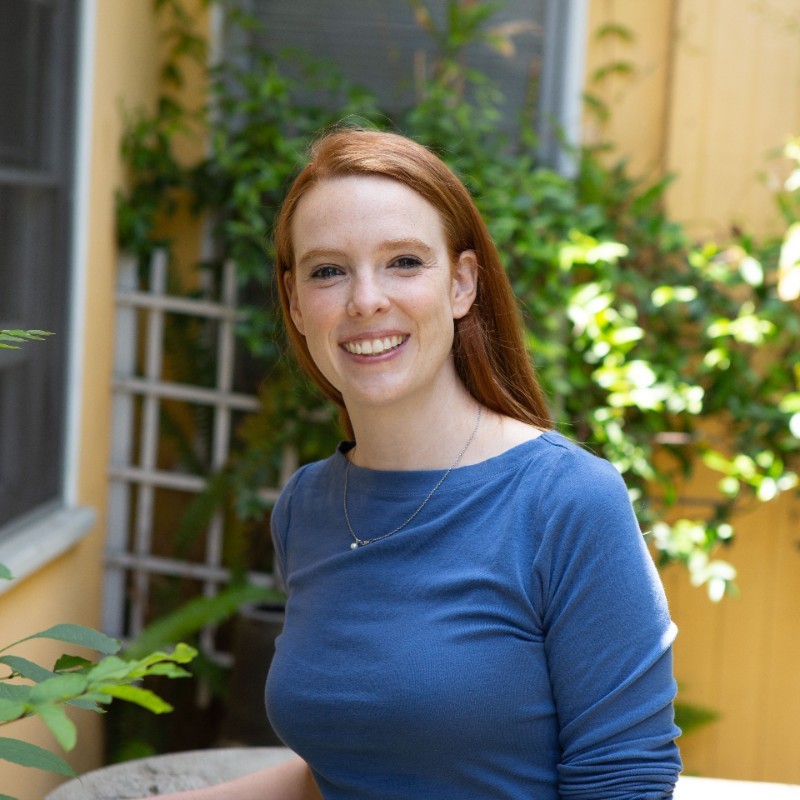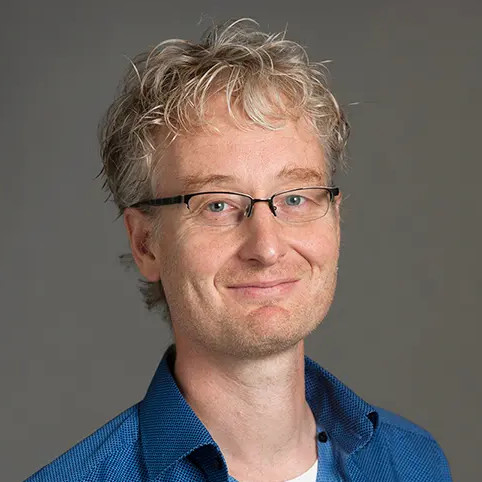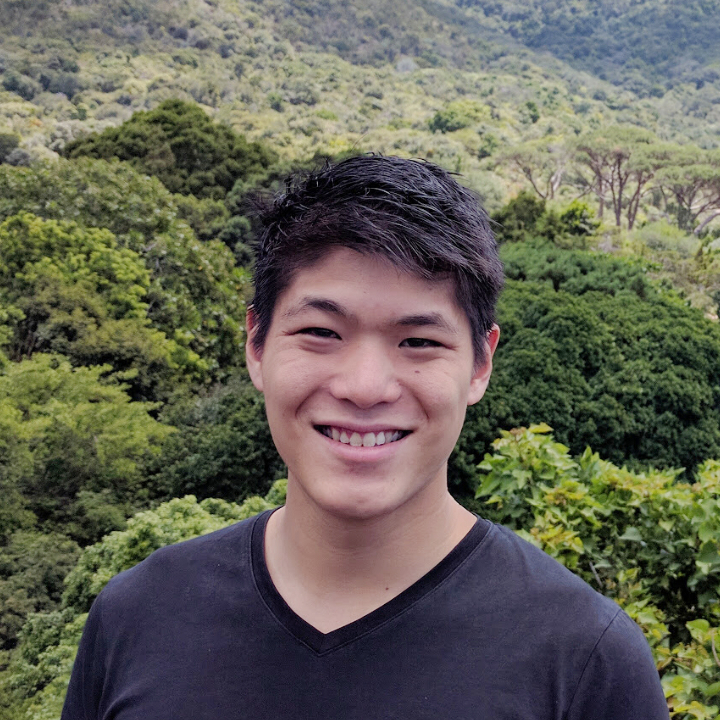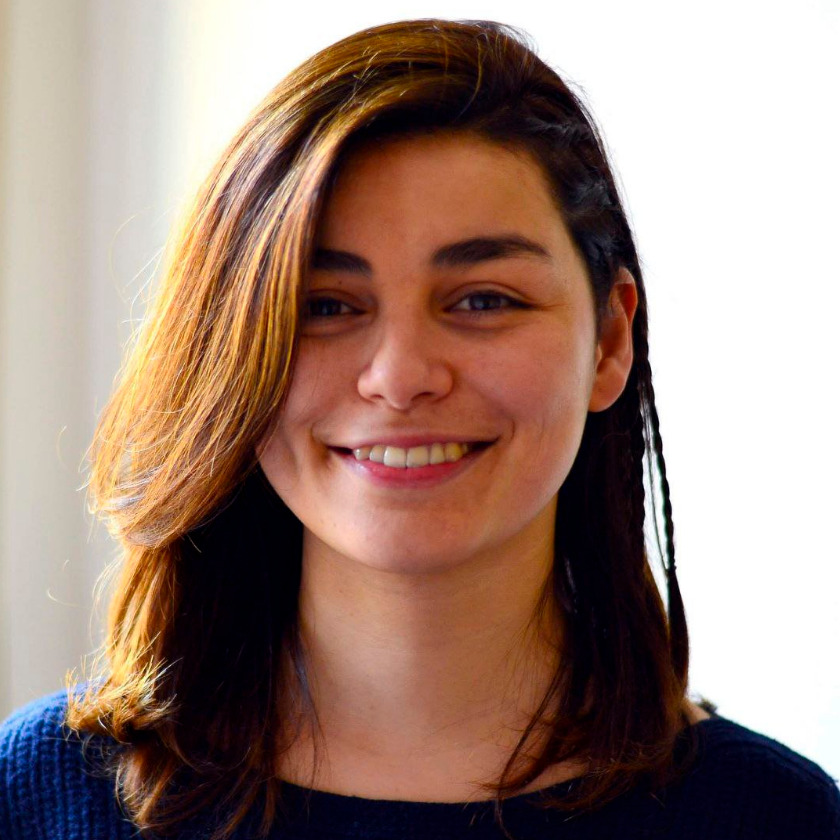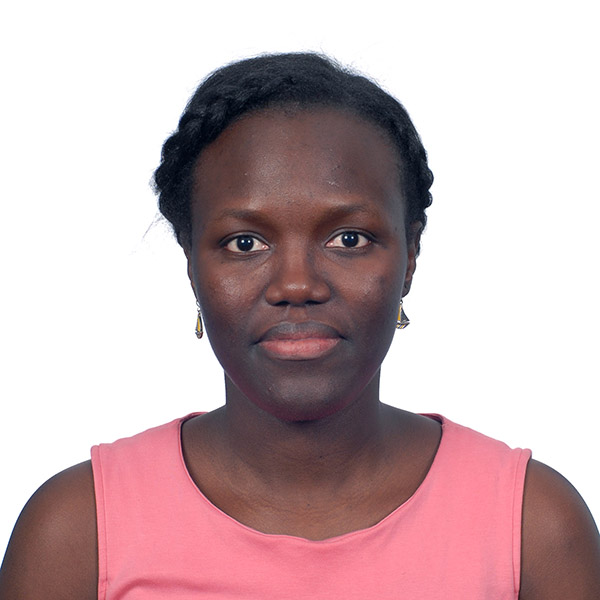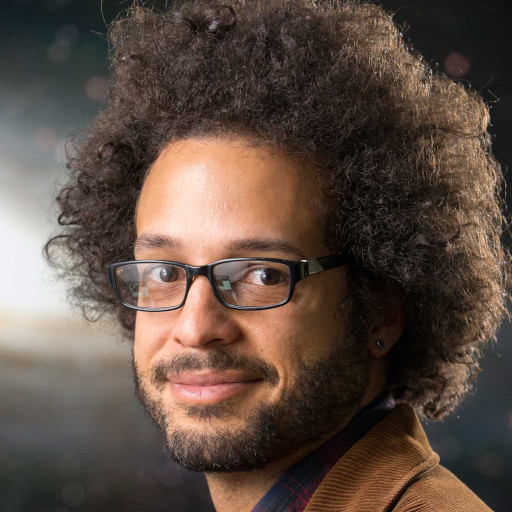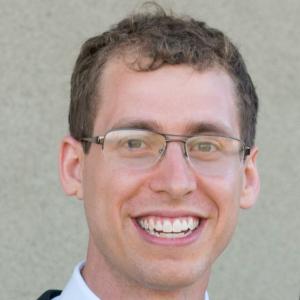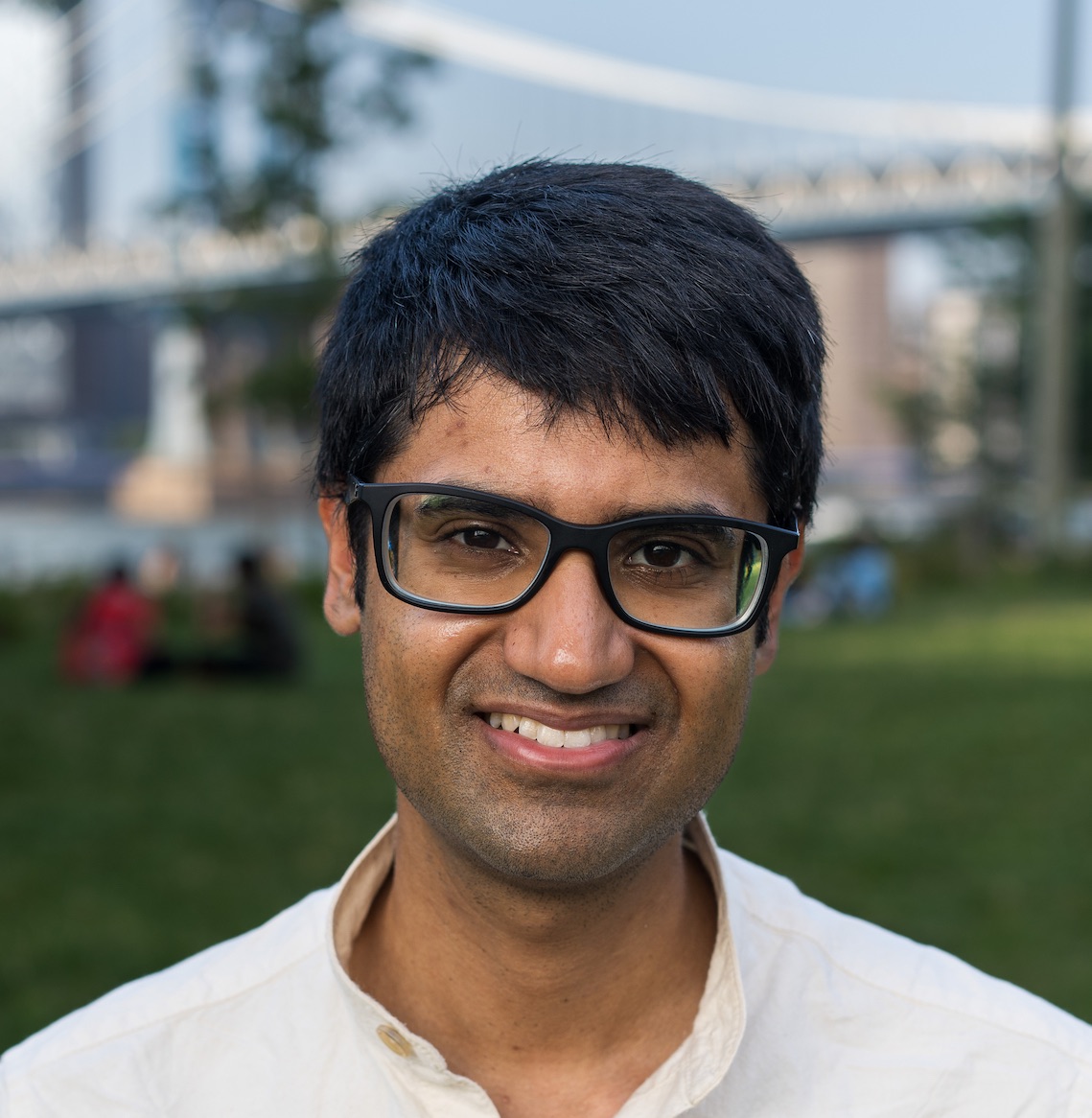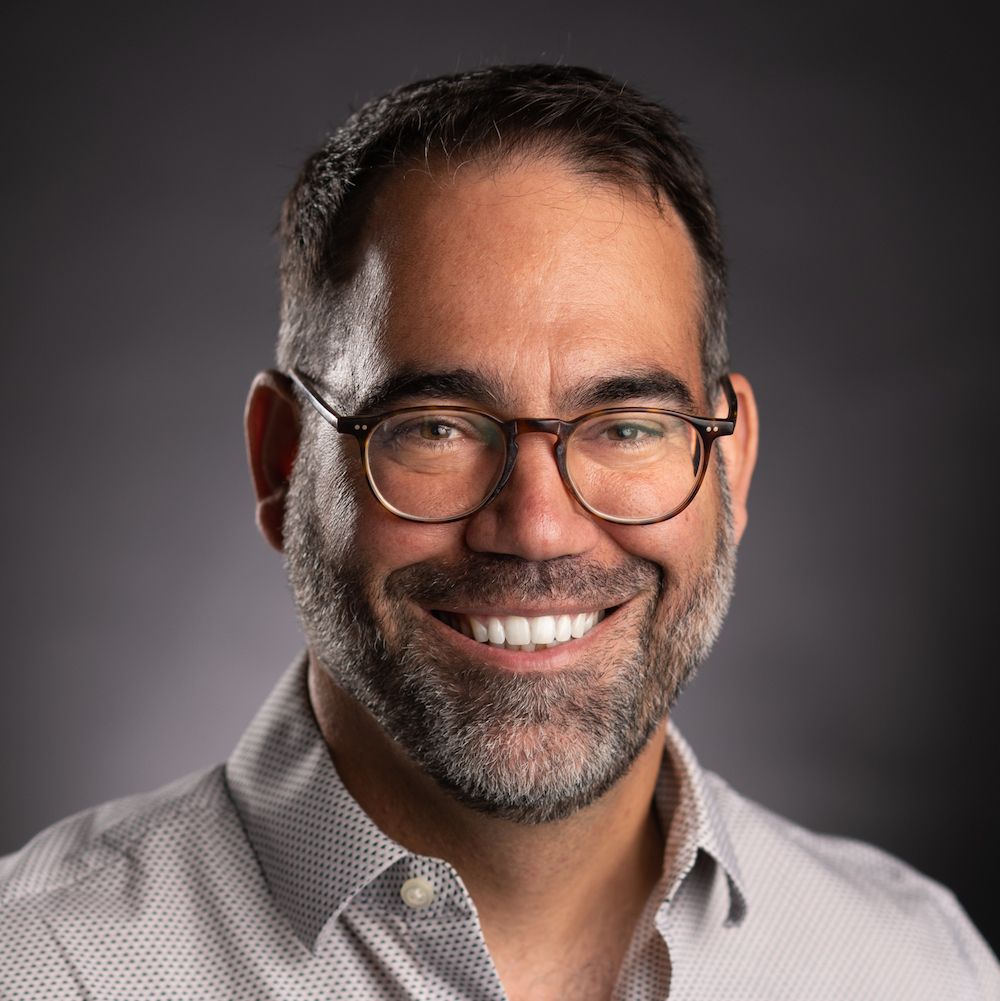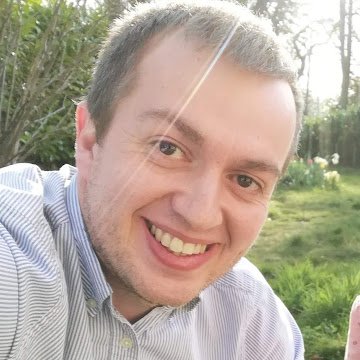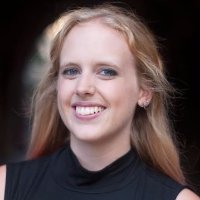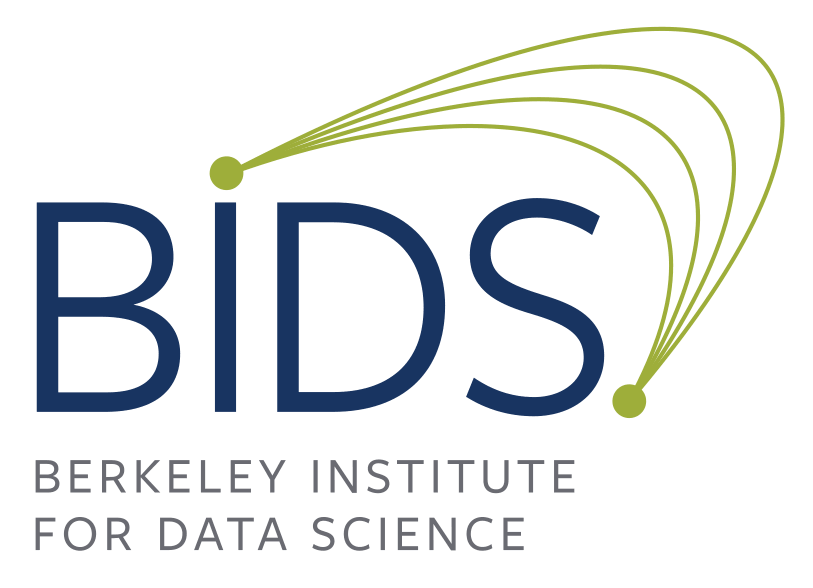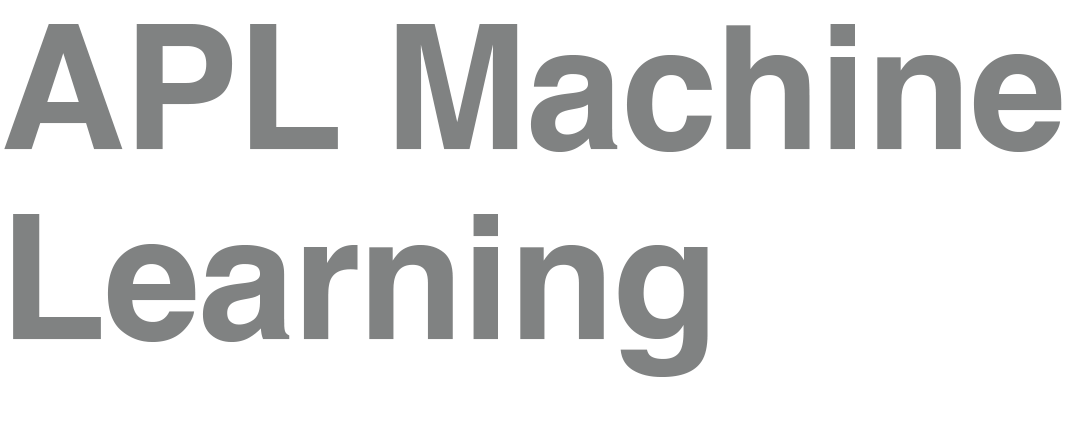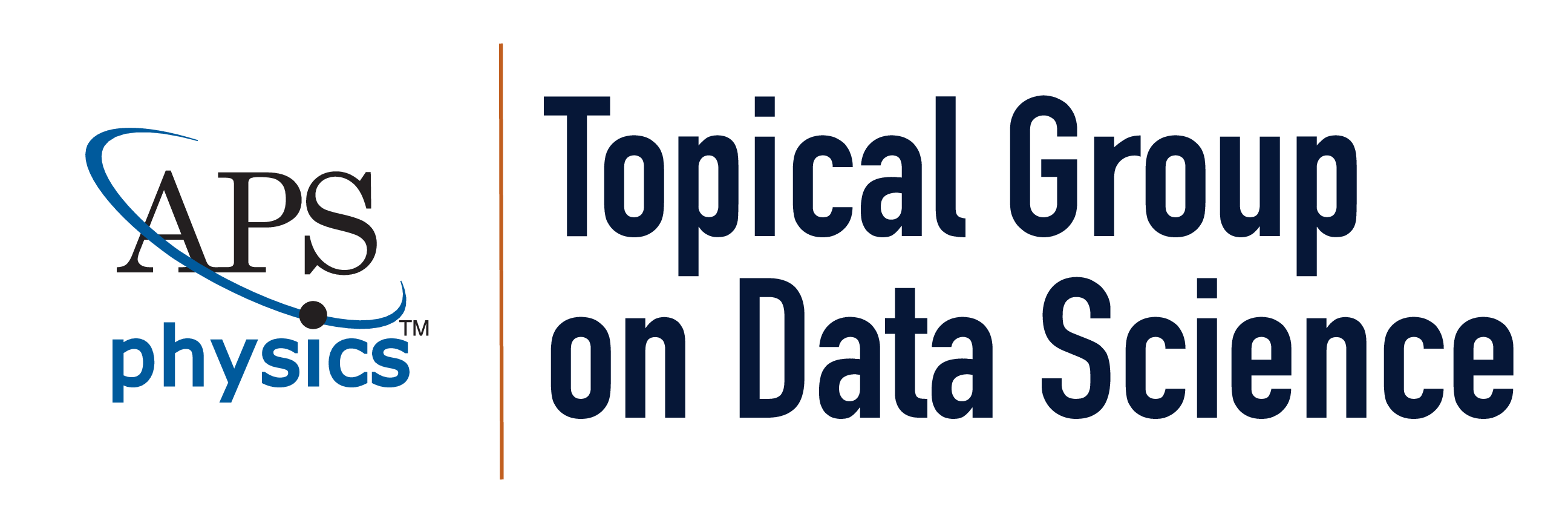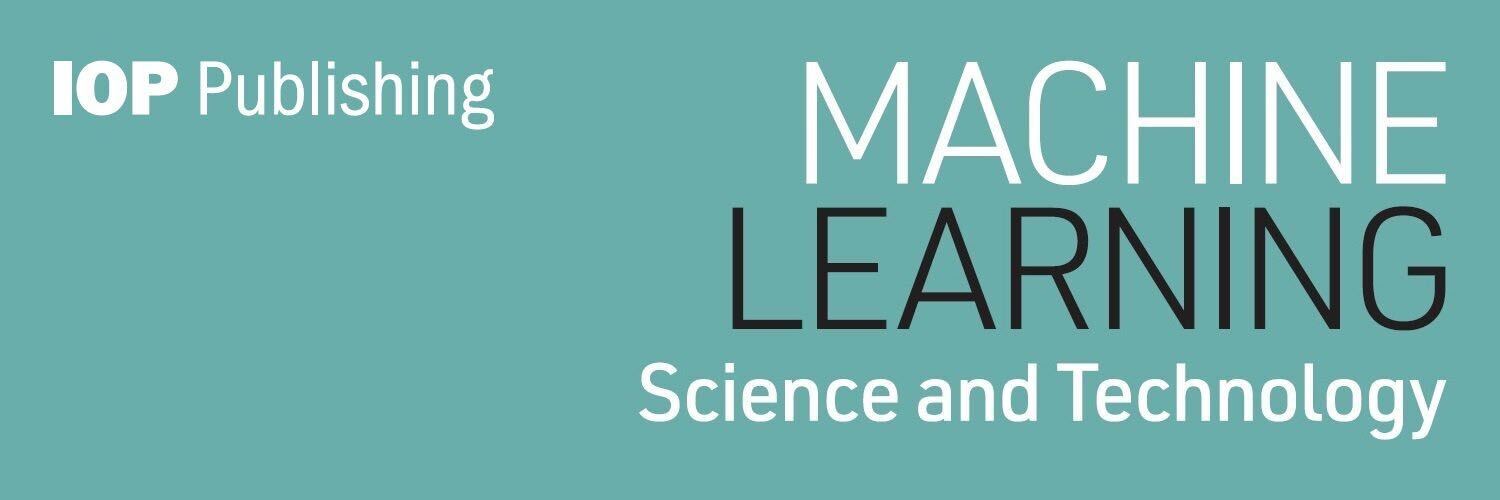| 1 |
Control-aware echo state networks (Ca-ESN) for the suppression of
extreme events [paper][poster]
Racca,
Alberto*;
Magri, Luca |
| 2 |
KeyCLD: Learning Constrained Lagrangian Dynamics in Keypoint Coordinates
from Images [paper][poster]
Daems,
Rembert*;
Taets, Jeroen; Wyffels, Francis; Crevecoeur, Guillaume |
| 4 |
Incorporating Additive Separability into Hamiltonian Neural Networks for
Regression and Interpretation [paper][poster]
Zi-Yu,
Khoo*; Low,
Jonathan Sze Choong; Bressan, Stéphane |
| 6 |
Extracting an Informative Latent Representation of High-Dimensional
Galaxy Spectra [paper][poster][video]
Iwasaki,
Daiki*;
Cooray, Suchetha; Takeuchi, Tsutomu |
| 8 |
When Black-box PDE Solvers Meet Deep Learning: End-to-End Mesh
Optimization for Efficient Fluid Flow Prediction [paper][poster]
Ma,
Shaocong*;
Diffenderfer, James; Kailkhura, Bhavya; Zhou, Yi
|
| 9 |
Physics-consistency of infinite neural networks [paper][poster][video]
Ranftl,
Sascha* |
| 10 |
Pay Attention to Mean Fields for Point Cloud Generation [paper][poster]
Käch,
Benno*;
Melzer-Pellmann, Isabell; Krücker, Dirk |
| 11 |
Simulation-based Inference for Cardiovascular Models [paper][poster]
Wehenkel,
Antoine*;
Behrmann, Jens; Miller, Andy; Sapiro, Guillermo; Sener, Ozan; Cuturi, Marco;
Jacobsen, Joern-Henrik |
| 13 |
Fast SoC thermal simulation with physics-aware U-Net [paper][poster]
Lin,
Yu-Sheng*; Lin,
Li-Song; Chang, Chin-Jui; Lin, Ting-Yu; Pan, Shih-Hong; Yu, Ya-Wen; Yang,
Kai-En; Lee, Wei Cheng; Lin, Yi-Chen; Chen, Tai-Yu; Yeh, Jason |
| 14 |
Unsupervised segmentation of irradiation-induced order–disorder phase
transitions in electron microscopy [paper][poster]
Ter-Petrosyan,
Arman
H*; Bilbrey, Jenna A; Doty, Christina ; Matthews, Bethany; Wang, Le; Du, Yingge;
Lang, Eric; Hattar, Khalid ; Spurgeon, Steven |
| 15 |
Attention-enhanced neural differential equations for physics-informed
deep learning of ion transport [paper][poster]
Rehman,
Danyal*;
Lienhard, John |
| 16 |
Learning Closure Relations using Differentiable Programming: An Example
in Radiation Transport [paper][poster]
Crilly,
Aidan*;
Duhig, Benjamin; Bouziani, Nacime |
| 18 |
DFT Hamiltonian Neural Network Training with Semi-supervised
Learning [paper][poster]
Cho,
Yucheol*; Choi,
Guenseok; Ham, Gyeongdo; Shin, Mincheol; Kim, Daeshik |
| 19 |
CaloLatent: Score-based Generative Modelling in the Latent Space for
Calorimeter Shower Generation [paper][poster]
Madula,
Thandikire*;
Mikuni, Vinicius M |
| 20 |
Predicting Galaxy Interloper Fraction with Graph Neural
Networks [paper][poster]
Massara,
Elena *;
Villaescusa, Francisco; Percival, Will |
| 24 |
ML-Enhanced Generalized Langevin Equation for Transient Anomalous
Diffusion in Polymer Dynamics [paper][poster]
Cherchi,
Gian-Michele*; Dequidt, Alain ; Hauret, Patrice; Guillin, Arnaud; Barra,
Vincent; Martzel, Nicolas |
| 26 |
Ensemble models outperform single model uncertainties and predictions
for operator-learning of hypersonic flows [paper][poster]
Leon,
Victor; Ford,
Noah; Mrema, Honest; Gilbert, Jeffrey; New, Alexander* |
| 28 |
Discovering Black Hole Mass Scaling Relations with Symbolic
Regression [paper][poster]
Jin,
Zehao*; Davis,
Benjamin |
| 29 |
Hydrogen Diffusion through Polymer using Deep Reinforcement
Learning [paper][poster]
Sang,
Tian*; Nomura,
Ken-ichi; Nakano, Aiichiro; Kalia, Rajiv; Vashishta, Priya |
| 30 |
Nonlinear-manifold reduced order models with domain
decomposition [paper][poster][video]
Diaz,
Alejandro N*;
Choi, Youngsoo; Heinkenschloss, Matthias |
| 31 |
A Multimodal Dataset and Benchmark for Radio Galaxy and Infrared Host
Detection [paper][poster][video]
Gupta,
Nikhel* |
| 33 |
PINNs-TF2: Fast and User-Friendly Physics-Informed Neural Networks in
TensorFlow V2 [paper][poster]
Akbarian
Bafghi,
Reza*; Raissi, Maziar |
| 35 |
Extending Explainable Boosting Machines to Scientific Image
Data [paper][poster]
Schug,
Daniel;
Yerramreddy, Sai; Caruana, Rich; Greenberg, craig; Zwolak, Justyna P* |
| 37 |
Fast Detection of Phase Transitions with Multi-Task
Learning-by-Confusion [paper][poster]
Arnold,
Julian;
Schäfer, Frank; Loerch, Niels* |
| 38 |
A Data-Driven, Non-Linear, Parameterized Reduced Order Model of Metal 3D
Printing [paper][poster][video]
Brown,
Aaron*; Chin,
Eric; Choi, Youngsoo; Khairallah, Saad; McKeown, Joseph |
| 39 |
Evaluating Physically Motivated Loss Functions for Photometric Redshift
Estimation [paper][poster]
Engel,
Andrew*;
Strube, Jan |
| 40 |
Variational quantum dynamics of two-dimensional rotor models
[paper][poster]
Medvidović,
Matija*;
Sels, Dries |
| 41 |
Pre-training strategy using real particle collision data for event
classification in collider physics [paper][poster]
Kishimoto,
Tomoe*;
Morinaga, Masahiro; Saito, Masahiko; Tanaka, Junichi |
| 42 |
Zephyr : Stitching Heterogeneous Training Data with Normalizing Flow for
Photometric Redshift Inference [paper][poster]
Sun,
Zechang*;
Speagle, Joshua S; Huang, Song; Ting, Yuan-Sen; Cai, Zheng |
| 43 |
Data-Driven Autoencoder Numerical Solver with Uncertainty Quantification
for Fast Physical Simulations [paper][poster]
Bonneville,
Christophe*; Choi, Youngsoo; Ghosh, Debojyoti; Belof, Jonathan L |
| 45 |
Uncovering Conformal Towers Using Deep Learning [paper][poster]
Oppenheim,
Lior*;
Ringel, Zohar; Gazit, Snir; Koch-Janusz, Maciej |
| 47 |
Incremental learning for physics-informed neural networks [paper][poster]
Dekhovich,
Aleksandr;
Sluiter, Marcel HF; Tax, David M.J.; Bessa, Miguel A* |
| 49 |
GAMMA: Galactic Attributes of Mass, Metallicity, and Age
Dataset [paper][poster]
Buck,
Tobias*; Çakır,
Ufuk |
| 50 |
Differential optimisation for task- and constraint-aware design of
particle detectors [paper][poster]
Strong,
Giles C*;
Lagrange, Maxime; Orio, Aitor; Bordignon, Anna; Bury, Florian; Dorigo, Tommaso;
Giammanco, Andrea; Safieldin, Mariam; Kieseler, Jan; Lamparth, Max; Martinez,
Pablo; Nardi, Federico; Vischia, Pietro; Zaraket, Haitham |
| 51 |
Neural ODEs as a discovery tool to characterize the structure of the hot
galactic wind of M82 [paper][poster]
Nguyen,
Dustin*;
Ting, Yuan-Sen; Thompson, Todd; Lopez, Sebastian; Lopez, Laura |
| 52 |
Speeding up astrochemical reaction networks with autoencoders and neural
ODEs [paper][poster]
Buck,
Tobias*;
Sulzer, Immanuel |
| 53 |
GalacticFlow: Learning a Generalized Representation of Galaxies with
Normalizing Flows [paper][poster]
Buck,
Tobias*; Wolf,
Luca |
| 54 |
PACuna: Automated Fine-Tuning of Language Models for Particle
Accelerators [paper][poster]
Sulc,
Antonin*;
Kammering, Raimund; Eichler, Annika; Wilksen, Tim |
| 55 |
Graph-Theoretical Approaches for AI-Driven Discovery in Quantum
Optics [paper][poster]
Gu,
Xuemei*;
Ruiz-Gonzalez, Carlos; Arlt, Soeren; Jaouni, Tareq; Petermann, Jan ; Sayyad,
Sharareh; Karimi, Ebrahim; Tischler, Nora; Krenn, Mario |
| 57 |
Direct Amortized Likelihood Ratio Estimation [paper][poster]
Cobb,
Adam D*;
Matejek, Brian; Elenius, Daniel; Roy, Anirban ; Jha, Susmit |
| 59 |
Physics-informed neural networks with unknown measurement noise
[paper][poster]
Pilar,
Philipp*;
Wahlstroem, Niklas |
| 60 |
Universal Semantic-less Texture Boundary Detection for Microscopy (and
Metallography) [paper][poster][video]
Rusanovsky,
Matan;
Beeri, Ofer ; Avidan, Shai; Oren, Gal* |
| 61 |
Information bottleneck learns dominant transfer operator eigenfunctions
in dynamical systems [paper][poster]
Schmitt,
Matthew S*;
Koch-Janusz, Maciej; Fruchart, Michel; Seara, Daniel; Vitelli, Vincenzo |
| 62 |
Causa prima: cosmology meets causal discovery for the first
time [paper][poster][video]
Pasquato,
Mario*;
Jin, Zehao; Lemos, Pablo; Davis, Benjamin; Macciò, Andrea |
| 64 |
Unraveling the Mysteries of Galaxy Clusters: Recurrent Inference
Deconvolution of X-ray Spectra [paper][poster]
Rhea,
Carter*;
Hlavacek-Larrondo, Julie; Kraft, Ralph; Bogdan, Akos; Perreault-Levasseur,
Laurence; Adam, Alexandre; Zuhone, John |
| 66 |
Scalable physics-guided data-driven component model reduction for Stokes
flow [paper][poster]
Chung,
Seung Whan*;
Choi, Youngsoo; Roy, Pratanu; Moore, Thomas; Roy, Thomas; Lin, Tiras; Baker,
Sarah |
| 67 |
Improving dispersive readout of a superconducting qubit by machine
learning on path signature [paper][poster]
Cao,
Shuxiang*; Shao,
Zhen; Zheng, Jian-Qing; Bakr, Mustafa; Leek, Peter; Lyons, Terry J |
| 69 |
Optimizing Likelihood-free Inference using Self-supervised Neural
Symmetry Embeddings [paper][poster]
Chatterjee,
Deep*;
Harris, Philip C; Goel, Maanas; Desai, Malina; Coughlin, Michael; Katsavounidis,
Erik |
| 70 |
Removing Dust from CMB Observations with Diffusion Models [paper][poster]
Heurtel-Depeiges,
David; Burkhart, Blakesley; Ohana, Ruben*; Régaldo-Saint Blancard, Bruno |
| 71 |
Rho-Diffusion: A diffusion-based density estimation framework for
computational physics [paper][poster]
Cai,
Maxwell X.*;
Lee, Kin Long Kelvin |
| 72 |
Transformers for Scattering Amplitudes [paper][poster][video]
Merz,
Garrett W*;
Charton, Francois; Cai, Tianji; Cranmer, Kyle; Dixon, Lance; Nolte, Niklas;
Wilhelm, Matthias |
| 74 |
NeuralHMC: Accelerated Hamiltonian Monte Carlo with a Neural Network
Surrogate Likelihood [paper][poster][video]
Wolniewicz,
Linnea
M*; Sadowski, Peter; Corti, Claudio |
| 75 |
Discovering Galaxy Features via Dataset Distillation [paper][poster]
Guan,
Haowen*; Zhao,
Xuan; Wang, Zishi; Li, Zhiyang; Kempe, Julia |
| 77 |
Modeling Coupled 1D PDEs of Cardiovascular Flow with Spatial Neural
ODEs [paper][poster][video]
Csala,
Hunor*; Mohan,
Arvind T; Livescu, Daniel; Arzani, Amirhossein |
| 79 |
Generating Multiphase Fluid Configurations in Fractures using Diffusion
Models [paper][poster]
Chung,
Jaehong*;
Marcato, Agnese; Guiltinan, Eric; Mukerji, Tapan; Lin, Yen Ting; Santos, Javier
E |
| 82 |
Redefining Super-Resolution: Fine-mesh PDE predictions without classical
simulations [paper][poster]
Sarkar,
Rajat Kumar*;
Majumdar, Ritam; Jadhav, Vishal; Sakhinana, Sagar Srinivas; Runkana,
Venkataramana |
| 83 |
Discovering Quantum Error Correcting Codes with Deep Reinforcement
Learning [paper][poster]
Olle,
Jan*; Zen,
Remmy; Puviani, Matteo; Marquardt, Florian |
| 84 |
Discovering Quantum Circuits for Logical State Preparation with Deep
Reinforcement Learning [paper][poster]
Zen,
Remmy*; Olle,
Jan; Puviani, Matteo; Marquardt, Florian |
| 85 |
Differentiable Simulation of a Liquid Argon TPC for High-Dimensional
Calibration [paper][poster]
Granger,
Pierre* |
| 87 |
Learning Hard Distributions with Quantum-enhanced Variational
Autoencoders [paper][poster][video]
Rao,
Anantha S;
Madan, Dhiraj*; Ray, Anupama; Vinayagamurthy, Dhinakaran; Santhanam, M S |
| 88 |
Revealing the Mechanism of Large-scale Gradient Systems Using a Neural
Reduced Potential [paper][poster]
Tsuji,
Shunya;
Murakami, Ryo; Shouno, Hayaru*; Mototake, Yoh-ichi |
| 89 |
Physical Symbolic Optimization [paper][poster]
Tenachi,
Wassim*;
Ibata, Rodrigo A; Diakogiannis, Foivos I |
| 90 |
Score-based Data Assimilation for a Two-Layer Quasi-Geostrophic
Model [paper][poster]
Rozet,
François*;
Louppe, Gilles |
| 91 |
Physics-Informed Tensor Basis Neural Network for Turbulence Closure
Modeling [paper][poster]
Riccius,
Leon*;
Agrawal, Atul; Koutsourelakis, PS |
| 92 |
Relating Generalization in Deep Neural Networks to Sensitivity of
Discrete Dynamical Systems [paper][poster]
Disselhoff,
Jan*;
Wand, Michael |
| 94 |
Orbital-Free Density Functional Theory with Continuous Normalizing
Flows [paper][poster]
Vargas
Hernández,
Rodrigo A.*; Chen, Ricky T Q; de Camargo, Alexandre |
| 95 |
DeepTreeGANv2: Iterative Pooling of Point Clouds [paper][poster]
Scham,
Moritz A.W.*;
Krücker, Dirk; Borras, Kerstin |
| 96 |
Robust Ocean Subgrid-Scale Parameterizations Using Fourier Neural
Operators [paper][poster]
Mangeleer,
Victor*;
Louppe, Gilles |
| 97 |
3D Localization of Microparticles from Holographic Images using Neural
Networks [paper][poster]
Paliwal,
Ayush*;
Schlenczek, Oliver; Thiede, Birte; Bagheri, Gholamhossein; Ecker, Alexander S
|
| 98 |
Locating Hidden Exoplanets Using Machine Learning [paper][poster]
Terry,
Jason P*;
Gleyzer, Sergei |
| 99 |
Learning Optical Maps in Liquid Xenon Detector with Poisson Likelihood
Loss [paper][poster]
Liang,
Shixiao*;
Tunnell, Christopher |
| 102 |
AstroYOLO: Learning Astronomy Multi-Tasks in a Single Unified Real-Time
Framework [paper][poster]
Khujaev,
Nodirkhuja;
Tsoy, Roman; Baek, Seungryul* |
| 103 |
Coarse graining systems on inhomogeneous graphs using contrastive
learning [paper][poster]
Gökmen,
Doruk Efe*;
Koch-Janusz, Maciej; Ringel, Zohar; Huber, Sebastian; Flicker, Felix; Biswas,
Sounak |
| 104 |
Understanding Pathologies of Deep Heteroskedastic Regression
[paper][poster]
Wong-Toi,
Eliot*;
Boyd, Alex J; Fortuin, Vincent; Mandt, Stephan |
| 105 |
Advancing Generative Modelling of Calorimeter Showers on Three
Frontiers [paper][poster]
Buhmann,
Erik*;
Diefenbacher, Sascha; Eren, Engin; Gaede, Frank; Kasieczka, Gregor ; Korcari,
William; Korol, Anatolii; Krause, Claudius G; Krueger, Katja; McKeown, Peter;
Shekhzadeh, Imahn; Shih, David |
| 106 |
Multi-fidelity Constrained Optimization for Stochastic Black Box
Simulators [paper][poster]
Ravi,
Kislaya*;
Agrawal, Atul; Koutsourelakis, PS; Bungartz, Hans-Joachim |
| 107 |
Activation Functions in Non-Negative Neural Networks [paper][poster]
Becker,
Marlon;
Drees, Dominik; Brückerhoff-Plückelmann, Frank; Schuck, Carsten; Pernice,
Wolfram; Risse, Benjamin* |
| 108 |
Tree-Based Algorithms for Weakly Supervised Anomaly Detection
[paper][poster]
Finke,
Thorben J;
Hein, Marie; Kasieczka, Gregor ; Krämer, Michael; Mück, Alexander; Prangchaikul,
Parada; Quadfasel, Tobias*; Shih, David; Sommerhalder, Manuel |
| 109 |
HIDM: Emulating Large Scale HI Maps using Score-based Diffusion
Models [paper][poster]
Hassan,
Sultan*;
Andrianomena, Sambatra HS |
| 111 |
Probabilistic Machine Learning based Turbulence Model Learning with a
Differentiable Solver [paper][poster]
Agrawal,
Atul*;
Koutsourelakis, PS |
| 113 |
AI ensemble for signal detection of higher order gravitational wave
modes of quasi-circular, spinning, non-precessing binary black hole
mergers [paper][poster]
Tian,
Minyang*;
Huerta, Eliu A |
| 114 |
Latent space representations of cosmological fields [paper][poster]
Andrianomena,
Sambatra HS*; Hassan, Sultan |
| 115 |
Enhancing Data-Assimilation in CFD using Graph Neural Networks
[paper][poster]
Quattromini,
Michele*; Bucci, Michele Alessandro; Cherubini, Stefania; Semeraro, Onofrio |
| 116 |
Gamma Ray AGNs: Estimating Redshifts and Blazar Classification using
Neural Networks with smart initialization and self-supervised
learning [paper][poster]
Gharat,
Sarvesh*;
Bhatta, Gopal; BORTHAKUR, ABHIMANYU |
| 117 |
Enhancing the local expressivity of geometric graph neural
networks [paper][poster]
Norwood,
Sam W*;
Schaaf, Lars L; Batatia, Ilyes; Bhowmik, Arghya; Csányi, Gábor |
| 121 |
Domain Adaptation for Measurements of Strong Gravitational
Lenses [paper][poster]
Swierc,
Paxson*;
Zhao, Yifan; Ciprijanovic, Aleksandra; Nord, Brian |
| 123 |
QDC: Quantum Diffusion Convolution Kernels on Graphs [paper][poster]
Markovich,
Thomas*
|
| 124 |
Efficient and Robust Jet Tagging at the LHC with Knowledge
Distillation [paper][poster]
Liu,
Ryan;
Gandrakota, Abhijith*; Ngadiuba, Jennifer; vlimant, jean-roch; Spiropulu , Maria
|
| 125 |
Fast Particle-based Anomaly Detection Algorithm with Variational
Autoencoder [paper][poster]
Liu,
Ryan*;
Gandrakota, Abhijith; Ngadiuba, Jennifer; vlimant, jean-roch; Spiropulu, Maria
|
| 129 |
Preparing Spectral Data for Machine Learning: A Study of Geological
Classification from Aerial Surveys [paper][poster]
Chung,
Jun Woo*;
Sim, Alex; Quiter, Brian; Wu, Yuxin; Zhao, Weijie; Wu, Kesheng |
| 130 |
Loss-driven sampling within hard-to-learn areas for simulation-based
neural network training [paper][poster]
Dymchenko,
Sofya*;
Raffin, Bruno |
| 131 |
Long Time Series Data Release from Broadband Axion Dark Matter
Experiment [paper][poster]
Fry,
Jessica T.*;
Li, Aobo; Fu, Xinyi Hope; Winslow, Lindley; Pappas, Kaliroe |
| 132 |
Physics - Informed Machine Learning for Reduced Space Chemical
Kinetics [paper][poster]
Kumar,
Anuj*;
Echekki, Tarek |
| 133 |
Smartpixels: Towards on-sensor inference of charged particle track
parameters and uncertainties [paper][poster]
Gray,
Lindsey A*;
Dickinson, Jennet; Kovach-Fuentes, Rachel; Swartz, Morris; Di Guglielmo,
Giuseppe; Bean, Alice; Berry, Douglas; Valentin, Manuel Blanco; DiPetrillo,
Karri; Fahim, Farah; Hirschauer, Jim; Kulkarni, Shruti; Lipton, Ron; Maksimovic,
Petar; Mills, Corrinne; Neubauer , Mark; Parpillon, Benjamin; Pradhan, Gauri;
Syal, Chinar; Tran, Nhan; Yoo, Jieun; Young, Aaron |
| 134 |
On Representations of Mean-Field Variational Inference [paper][poster]
Ghosh,
Soumyadip;
Lu, Yingdong*; Nowicki, Tomasz; Zhang, Edith J |
| 135 |
Active learning meets fractal decision boundaries: a cautionary tale
from the Sitnikov three body problem [paper][poster]
Payot,
Nicolas*;
Pasquato, Mario; Trani, Alessandro Alberto; Hezaveh, Yashar;
Perreault-Levasseur, Laurence |
| 136 |
A deep learning framework for jointly extracting spectra and
source-count distributions in astronomy [paper][poster]
Wolf,
Florian*;
List, Florian; Rodd, Nicholas; Hahn, Oliver |
| 137 |
Machine learning-based compression of quantum many body physics: PCA and
autoencoder representation of the vertex function [paper][poster]
Zang,
Jiawei*;
Medvidović, Matija; Kiese, Dominik; Di Sante, Domenico; Sengupta, Anirvan;
Millis, Andy |
| 138 |
Domain Adaptive Graph Neural Networks for Constraining Cosmological
Parameters Across Multiple Data Sets [paper][poster]
Roncoli,
Andrea*;
Ciprijanovic, Aleksandra; Voetberg, Margaret; Villaescusa, Francisco; Nord,
Brian |
| 139 |
Multibasis Encodings in Recurrent Neural Network Wave Functions for
Variational Optimization [paper][poster]
Kokaew,
Wirawat*
|
| 140 |
Simulation Based Inference of BNS Kilonova Properties: A Case Study with
AT2017gfo [paper][poster]
de
matos, Phelipe
Antonie Darc*; Bom, Clecio; Fraga, Bernardo M O ; Kilpatrick, Charles D. |
| 141 |
Physics-aware Modeling of an Accelerated Particle Cloud [paper][poster]
Goutierre,
Emmanuel*; Guler, Hayg; Bruni, Christelle; Cohen, Johanne; Sebag, Michele |
| 144 |
A Physics-Constrained NeuralODE Approach for Robust Learning of Stiff
Chemical Kinetics [paper][poster]
Kumar,
Tadbhagya*;
Kumar, Anuj; Pal, Pinaki |
| 145 |
Trick or treat? Evaluating stability strategies in graph network-based
simulators [paper][poster]
Rochman
Sharabi,
Omer*; Louppe, Gilles |
| 146 |
Super-Resolution Emulation of Large Cosmological Fields with a 3D
Conditional Diffusion Model [paper][poster]
Rouhiainen,
Adam*;
Gira, Michael; Shiu, Gary; Lee, Kangwook; Münchmeyer, Moritz |
| 147 |
E(2) Equivariant Neural Networks for Robust Galaxy Morphology
Classification [paper][poster]
Pandya,
Sneh J*;
Patel, Purvik; O, Franc; Blazek, Jonathan |
| 148 |
Reduced-order modeling for parameterized PDEs via implicit neural
representations [paper][poster][video]
Wen,
Tianshu*; Lee,
Kookjin; Choi, Youngsoo |
| 149 |
Simulation-Based Inference for Detecting Blending in Spectra
[paper][poster]
McNamara,
Declan*;
Regier, Jeffrey |
| 150 |
JetLOV: Enhancing Jet Tree Tagging through Neural Network Learning of
Optimal LundNet Variables [paper][poster]
Cerro,
Giorgio* |
| 151 |
Hierarchical Cross-entropy Loss for Classification of Astrophysical
Transients [paper][poster]
Villar,
Victoria A*
|
| 152 |
Surrogate Model Training Data for FIDVR-related Voltage Control in
Large-scale Power Grids [paper][poster]
Yin,
Tianzhixi*;
Huang, Renke; Hossain, Ramij-Raja; Huang, Qiuhua; Tan, Jie; Yu, Wenhao |
| 154 |
Differentiable, End-to-End Forward Modeling for 21 cm Cosmology: Robust
Systematics Error Budgeting and More [paper][poster]
Kern,
Nicholas* |
| 155 |
Investigating the Ability of PINNs To Solve Burgers’ PDE Near
Finite-Time BlowUp [paper][poster][video]
Kumar,
Dibyakanti*;
Mukherjee, Anirbit |
| 156 |
Detection and Segmentation of Ice Blocks in Europa's Chaos Terrain Using
Mask R-CNN [paper][poster]
Dunn,
Marina M*;
Nixon, Conor A; Mills, Alyssa C; Awadallah, Ahmed; Duncan, Ethan J; Santerre,
John W; Trent, Douglas; Larsen, Andrew |
| 157 |
Neural Networks vs. Whittaker Smoothing: Advanced Techniques for
Scattering Signal Removal in 3D Fluorescence spectra [paper][poster]
Zakuskin,
Aleksandr;
Krylov, Ivan N.; Labutin, Timur A.* |
| 159 |
Benchmarking of Fast and Interpretable UF Machine Learning
Potentials [paper][poster]
Prakash,
Pawan* |
| 160 |
A Physics-Informed Variational Autoencoder for Rapid Galaxy Inference
and Anomaly Detection [paper][poster]
Gagliano,
Alexander
T*; Villar, Ashley |
| 162 |
Pythia: A prototype artificial agent for designing optimal
gravitational-wave follow-up campaigns [paper][poster]
Sravan,
Niharika*;
Graham, Matthew; Coughlin, Michael; Anand, Shreya; Ahumada, Tomas |
| 163 |
Probabilistic Reconstruction of Dark Matter fields from galaxies using
diffusion models [paper][poster]
Cuesta,
Carolina;
Ni, Yueying; Park, Core Francisco; Mudur, Nayantara; Ono, Victoria* |
| 164 |
Predicting the Age of Astronomical Transients from Real-Time
Multivariate Time Series [paper][poster]
Muthukrishna,
Daniel* |
| 165 |
Multiscale Feature Attribution for Outliers [paper][poster]
Shen,
Jeff*;
Melchior, Peter M |
| 167 |
Learning Reionization History from Quasars with Simulation-Based
Inference [paper][poster]
Chen,
Huanqing*;
Speagle, Joshua S; Rogers, Keir |
| 168 |
Interpretable Joint Event-Particle Reconstruction at NOvA with Sparse
CNNs and Transformers [paper][poster]
Shmakov,
Alexander*;
Yankelevich, Alejandro J; Bian, Jianming; Baldi, Pierre |
| 170 |
SimSIMS: Simulation-based Supernova Ia Model Selection with thousands of
latent variables [paper][poster]
Karchev,
Kosio*;
Trotta, Roberto ; Weniger, Christoph |
| 171 |
Accelerating Kinetic Simulations of Electrostatic Plasmas with
Reduced-Order Modeling [paper][poster][video]
Tsai,
Ping-Hsuan*;
Chung, Seung Whan; Ghosh, Debojyoti; Loffeld, John; Choi, Youngsoo; Belof,
Jonathan L |
| 172 |
Sequential Monte Carlo for Detecting and Deblending Objects in
Astronomical Images [paper][poster]
White,
Tim*; Regier,
Jeffrey |
| 173 |
DeepSurveySim: Simulation Software and Benchmark Challenges for
Astronomical Observation Scheduling [paper][poster]
Voetberg,
Margaret*;
Nord, Brian |
| 174 |
LoDIP: Low-dose phase retrieval with deep image prior [paper][poster]
Manekar,
Raunak*;
Negrini, Elisa; Pham, Minh; Jacobs, Daniel; Srivastava, Jaideep; Osher, Stanley;
Miao, Jianwei |
| 175 |
Bayesian multi-band fitting of alerts for kilonovae detection
[paper][poster]
Biswas,
Biswajit*
|
| 176 |
Forward Gradients for Data-Driven CFD Wall Models [paper][poster]
Hueckelheim,
Jan C*;
Kumar, Tadbhagya; Raghavan, Krishnan; Pal, Pinaki |
| 177 |
Learning an Effective Evolution Equation for Particle-Mesh Simulations
Across Cosmologies [paper][poster]
Payot,
Nicolas*;
Lemos, Pablo; Perreault-Levasseur, Laurence; Cuesta, Carolina; Modi, Chirag;
Hezaveh, Yashar |
| 178 |
Active Learning for Discovering Complex Phase Diagrams with Gaussian
Processes [paper][poster]
Zhu,
Max Y*; Yao, Jian; Mynatt, Marcus; Pugzlys,
Hubert; Li, Shuyi; Zhao, Qingyuan; Jia, Chunjing |
| 179 |
RACER: Rational Artificial Intelligence Car-following-model Enhanced by
Reality [paper][poster]
Li,
Tianyi*; Stern,
Raphael |
| 180 |
Learned integration contour deformation for signal-to-noise improvement
in Monte Carlo calculations [paper][poster]
Detmold,
William;
Kanwar, Gurtej; Lin, Yin*; Shanahan, Phiala; Wagman, Michael |
| 181 |
The search for the lost attractor [paper][poster][video]
Pasquato,
Mario*;
Haddad, Syphax; Di Cintio, Pierfrancesco; Adam, Alexandre; Dia, Noé; Petrache,
Mircea; Di Carlo, Ugo Niccolò; Trani, Alessandro Alberto; Perreault-Levasseur,
Laurence; Hezaveh, Yashar; Lemos, Pablo |
| 182 |
Cosmological Field Emulation and Parameter Inference with Diffusion
Models [paper][poster]
Mudur,
Nayantara*;
Cuesta, Carolina; Finkbeiner, Douglas |
| 183 |
Symbolic Machine Learning for High Energy Physics Calculations
[paper][poster]
Alnuqaydan,
Abdulhakim*; Gleyzer, Sergei; Prosper, Harrison; Reinhardt, Eric; Charton,
Francois; Anand, Neeraj |
| 184 |
Autoencoding Labeled Interpolator, Inferring Parameters From Image And
Image From Parameters [paper][poster]
SaraerToosi,
Ali*;
Broderick, Avery |
| 185 |
Leveraging Deep Learning for Physical Model Bias of Global Air Quality
Estimates [paper][poster]
Doerksen,
Kelsey*;
Gal, Yarin; Kalaitzis, Freddie; Marchetti, Yuliya; Lu, You; Montgomery, James;
Miyazaki, Kazuyuki; Bowman, Kevin |
| 186 |
Towards data-driven models of hadronization [paper][poster][video]
Bierlich,
Christian;
Ilten, Phil; Menzo, Tony; Mrenna, Stephen; Szewc, Manuel; Wilkinson, Michael K.
; Youssef, Ahmed*; Zupan, Jure |
| 187 |
From Plateaus to Progress: Unveiling Training Dynamics of PINNs
[paper][poster]
Lengyel,
Daniel*;
Parpas, Panos; Pandya, Rahil R |
| 188 |
Equivariant Neural Networks for Signatures of Dark Matter Morphology in
Strong Lensing Data [paper][poster]
Cheeramvelil,
Geo
Jolly*; Toomey, Michael W; Gleyzer, Sergei |
| 189 |
Echoes in the Noise: Posterior Samples of Faint Galaxy Surface
Brightness Profiles with Score-Based Likelihoods and Priors [paper][poster]
Adam,
Alexandre*;
Stone, Connor J; Bottrell, Connor; Legin, Ronan; Perreault-Levasseur, Laurence;
Hezaveh, Yashar |
| 190 |
Deep Learning Segmentation of Spiral Arms and Bars [paper][poster]
Walmsley,
Mike*;
Spindler, Ashley |
| 191 |
Accelerating Flow Simulations using Online Dynamic Mode
Decomposition [paper][poster][video]
Suh,
Seung Won*;
Chung, Seung Whan; Bremer, Peer-Timo; Choi, Youngsoo |
| 192 |
Sparse 3D Images: Point Cloud or Image methods? [paper][poster]
Torales
Acosta,
Fernando*; Mikuni, Vinicius M; Nachman, Benjamin; Arratia, Miguel; Karki,
Bishnu; Milton, Ryan; Karande, Piyush; Angerami, Aaron |
| 194 |
Classification under Prior Probability Shift in Simulator-Based
Inference: Application to Atmospheric Cosmic-Ray Showers [paper][poster]
Shen,
Alexander*;
Lee, Ann; Masserano, Luca; Dorigo, Tommaso; Doro, Michele; Izbicki, Rafael |
| 195 |
Rare Galaxy Classes Identified In Foundation Model
Representations [paper][poster]
Walmsley,
Mike*;
Scaife, Anna |
| 196 |
Understanding and Visualizing Droplet Distributions in Simulations of
Shallow Clouds [paper][poster]
Will,
Justus C*;
Jenney, Andrea; Lamb, Kara D.; Pritchard, Michael; Kaul, Colleen; Ma, Po-Lun;
Shpund, Jacob; Pressel, Kyle; van Lier-Walqui, Marcus; Mandt, Stephan |
| 197 |
Beyond PID Controllers: PPO with Neuralized PID Policy for Proton Beam
Intensity Control in Mu2e [paper][poster]
Hu,
Jerry Yao-Chieh;
Xu, Chenwei*; Narayanan, Aakaash; Thieme, Mattson; Nagaslaev, Vladimir; Austin,
Mark; Arnold, Jeremy; Berlioz, Jose; Hanlet, Pierrick; Ibrahim, Aisha; Nicklaus,
Dennis; Mitrevski, Jovan; Pradhan, Gauri; Saewert, Andrea; Seiya, Kiyomi;
Schupbach, Brian; Thurman-Keup, Randy; Tran, Nhan; Shi, Rui; Ogrenci, Seda;
Shuping, Alexis Maya-Isabelle ; Hazelwood, Kyle; Liu, Han |
| 200 |
Loss Functionals for Learning Likelihood Ratios [paper][poster]
Rizvi,
Shahzar*;
Pettee, Mariel; Nachman, Benjamin |
| 201 |
19 Parameters Is All You Need: Tiny Neural Networks for Particle
Physics [paper][poster]
Bogatskiy,
Alexander*; Hoffman, Timothy; Offermann, Jan |
| 202 |
CP-PINNs: Changepoints Detection in PDEs using Physics Informed Neural
Networks with Total-Variation Penalty [paper][poster]
Dong,
Zhikang*;
Polak, Pawel |
| 203 |
Self-Driving Telescopes: Autonomous Scheduling of Astronomical
Observation Campaigns with Offline Reinforcement Learning [paper][poster]
Terranova,
Franco*;
Voetberg, Margaret; Nord, Brian; Pagul, Amanda |
| 204 |
High-dimensional and Permutation Invariant Anomaly Detection with
Diffusion Generative Models [paper][poster]
Mikuni,
Vinicius M*;
Nachman, Benjamin |
| 205 |
Generative Diffusion Models for Lattice Field Theory [paper][poster]
Wang,
Lingxiao*;
Aarts, Gert; Zhou, Kai |
| 206 |
Reconstruction of Fields from Sparse Sensing: Differentiable Sensor
Placement Enhances Generalization [paper][poster]
Marcato,
Agnese*;
O'Malley, Daniel; Viswanathan, Hari S; Guiltinan, Eric; Santos, Javier E |
| 207 |
Learning Dark Matter Representation from Strong Lensing Images through
Self-Supervision [paper][poster]
Deshmukh,
Yashwardhan A.*; Sachdev, Kartik; Toomey, Michael W; Gleyzer, Sergei |
| 209 |
Graph Neural Networks for Identifying Protein Reactive
Compounds [paper][poster]
Cano
Gil, Victor
Hugo*; Rowley, Christopher |
| 210 |
Towards out-of-distribution generalization in large-scale astronomical
surveys: robust networks learn similar representations [paper][poster]
Gondhalekar,
Yash*;
Hassan, Sultan; Saphra, Naomi P; Andrianomena, Sambatra HS |
| 211 |
Towards an Astronomical Foundation Model for Stars [paper][poster]
Leung,
Henry* |
| 213 |
Induced Generative Adversarial Particle Transformers [paper][poster]
Li,
Anni;
Krishnamohan, Venkat; Kansal, Raghav*; Duarte, Javier; Sen, Rounak; Tsan,
Steven; Zhang, Zhaoyu |
| 214 |
Lensformer: A Physics-Informed Vision Transformer for Gravitational
Lensing [paper][poster]
Velôso
de Souza,
Lucas José*; Toomey, Michael W; Gleyzer, Sergei |
| 215 |
Self-supervised learning for searching jellyfish galaxies in the ocean
of data from upcoming surveys [paper][poster]
Gondhalekar,
Yash*;
de Souza, Rafael; Chies Santos, Ana; Queiroz de Abreu Silva, Carolina |
| 216 |
deep-REMAP: Parameterization of Stellar Spectra Using Regularized
Multi-Task Learning [paper][poster]
Gilda,
Sankalp* |
| 218 |
Bayesian Simulation-based Inference for Cosmological Initial
Conditions [paper][poster]
Anau
Montel, Noemi*;
List, Florian; Weniger, Christoph |
| 220 |
Autoregressive Transformers for Disruption Prediction in Nuclear Fusion
Plasmas [paper][poster]
Spangher,
Lucas*;
Arnold, William F; Spangher, Alexander; Maris, Andrew; Rea, Cristina |
| 221 |
CaloFFJORD: High Fidelity Calorimeter Simulation Using Continuous
Normalizing Flows [paper][poster]
Furia,
Chirag*;
Mikuni, Vinicius M |
| 222 |
Machine learning-assisted nanoscale photoelectrical sensing [paper][poster]
Zhu
, Ziyan*; Ji,
Zhurun; Yassin, Houssam; Shen, Zhi-Xun; Devereaux, Thomas |
| 223 |
Emulating deviations from Einstein's General Relativity using
conditional GANs [paper][poster]
Gondhalekar,
Yash*;
Bose, Sownak |
| 225 |
Operator SVD with Neural Networks via Nested Low-Rank
Approximation [paper][poster]
Ryu,
Jongha J; Xu,
Xiangxiang; Erol, Hasan Sabri Melihcan; Bu, Yuheng; Zheng, Lizhong; Wornell,
Gregory W* |
| 227 |
Gradient weighted physics-informed neural networks for capturing shocks
in porous media flows [paper][poster]
Kapoor,
Somiya;
Chandra, Abhishek; Kapoor, Taniya*; Curti, Mitrofan |
| 229 |
Physics-Informed Calibration of Aeromagnetic Compensation in Magnetic
Navigation Systems using Liquid Time-Constant
Networks
Nerrise, Favour*; Sosanya, Sosa; Neary, Patrick |
| 230 |
The DL Advocate: Playing the devil’s advocate with hidden systematic
uncertainties [paper][poster]
Ustyuzhanin,
Andrey*; Golutvin, Andrey; Iniukhin, Alexander; Owen, Patrick; Mauri, Andrea;
Serra, Nicola |
| 231 |
MCMC to address model misspecification in Deep Learning classification
of Radio Galaxies [paper][poster]
Mohan,
Devina*;
Scaife, Anna |
| 232 |
Application of Zone Method based Physics-Informed Neural Networks in
Reheating Furnaces [paper][poster]
Dutta,
Ujjal Kr*;
Lipani, Aldo; Wang, Chuan; Hu, Yukun |
| 233 |
LEO Satellite Orbit Prediction with Physics Informed Machine
Learning [paper][poster]
Alesiani,
Francesco*; Takamoto, Makoto; Kamiya, Toshio; Etou, Daisuke |
| 234 |
Physically Accurate Fast Nanophotonic Simulations with Physics Informed
Model and Training [paper][poster]
Dasdemir,
Ahmet
Onur; Dimici, Can; Erdem, Aykut; Magden, Emir Salih* |
| 235 |
Bayesian Imaging for Radio Interferometry with Score-Based
Priors [paper][poster]
Dia,
Noé*;
Yantovski-Barth, M. J. ; Adam, Alexandre; Bowles, Micah R; Lemos, Pablo;
Perreault-Levasseur, Laurence; Hezaveh, Yashar; Scaife, Anna |
| 236 |
Virtual EVE: a Deep Learning Model for Solar Irradiance
Prediction [paper][poster]
Indaco,
Manuel*;
Gass , Daniel ; Fawcett, William; Galvez, Richard; Wright, Paul J;
Muñoz-Jaramillo, Andrés |
| 237 |
High-Cadence Thermospheric Density Estimation enabled by Machine
Learning on Solar Imagery [paper][poster]
Malik,
Shreshth A*;
Walsh, James EJ; Acciarini, Giacomo; Berger, Thomas; Baydin, Atilim Gunes |
| 239 |
Combining astrophysical datasets with CRUMB [paper][poster]
Porter,
Fiona M*
|
| 241 |
Ultra Fast Transformers on FPGAs for Particle Physics
Experiments [paper][poster]
Jiang,
Zhixing; Yin,
Ziang; Khoda, Elham E*; Loncar, Vladimir; Govorkova, Ekaterina; Moreno, Eric A;
Harris, Philip C; Hauck, Scott; Hsu, Shih-chieh |
| 242 |
Unleashing the Potential of Fractional Calculus in Graph Neural
Networks [paper][poster]
Kang,
Qiyu*; ZHAO,
KAI; Ding, Qinxu; Ji, Feng; Li, Xuhao; LIANG, WENFEI; Song, Yang; Tay, Wee Peng
|
| 245 |
Approximately-invariant neural networks for quantum many-body
physics [paper][poster]
Kufel,
Dominik S*;
Kemp, Jack; Yao, Norman |
| 246 |
Pseudotime Diffusion [paper][poster]
Moss,
Jacob*;
England, Jeremy; Lió, Pietro |
| 248 |
Reinforcement Learning for Ising Model [paper][poster]
Lu,
Yichen; Liu,
Xiao-Yang* |
| 249 |
Computing Partition Functions in Unnormalized Density Models Using
Bayesian Thermodynamic Integration [paper][poster]
Lobashev,
Alexander*; Tamm, Mikhail |
| 250 |
ELUQuant: Event-Level Uncertainty Quantification using Physics-Informed
Bayesian Neural Networks with Flow approximated Posteriors - A DIS
Study [paper][poster]
Fanelli,
Cristiano
*; Giroux, James |
The Machine Learning and the Physical
Sciences 2023 workshop will be held on December 15, 2023 at the New Orleans Convention
Center
in New Orleans, USA as a part of the 37th annual conference on
Neural Information Processing Systems (NeurIPS). The workshop is planned to take
place in a hybrid format inclusive of virtual participation.
